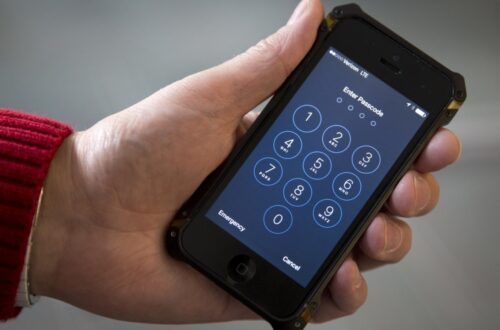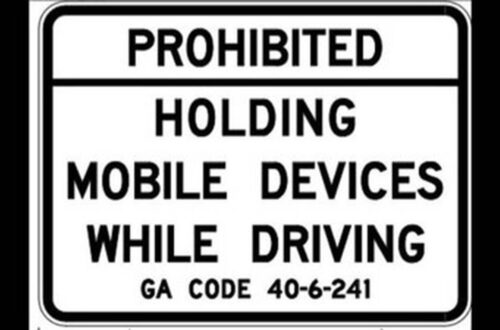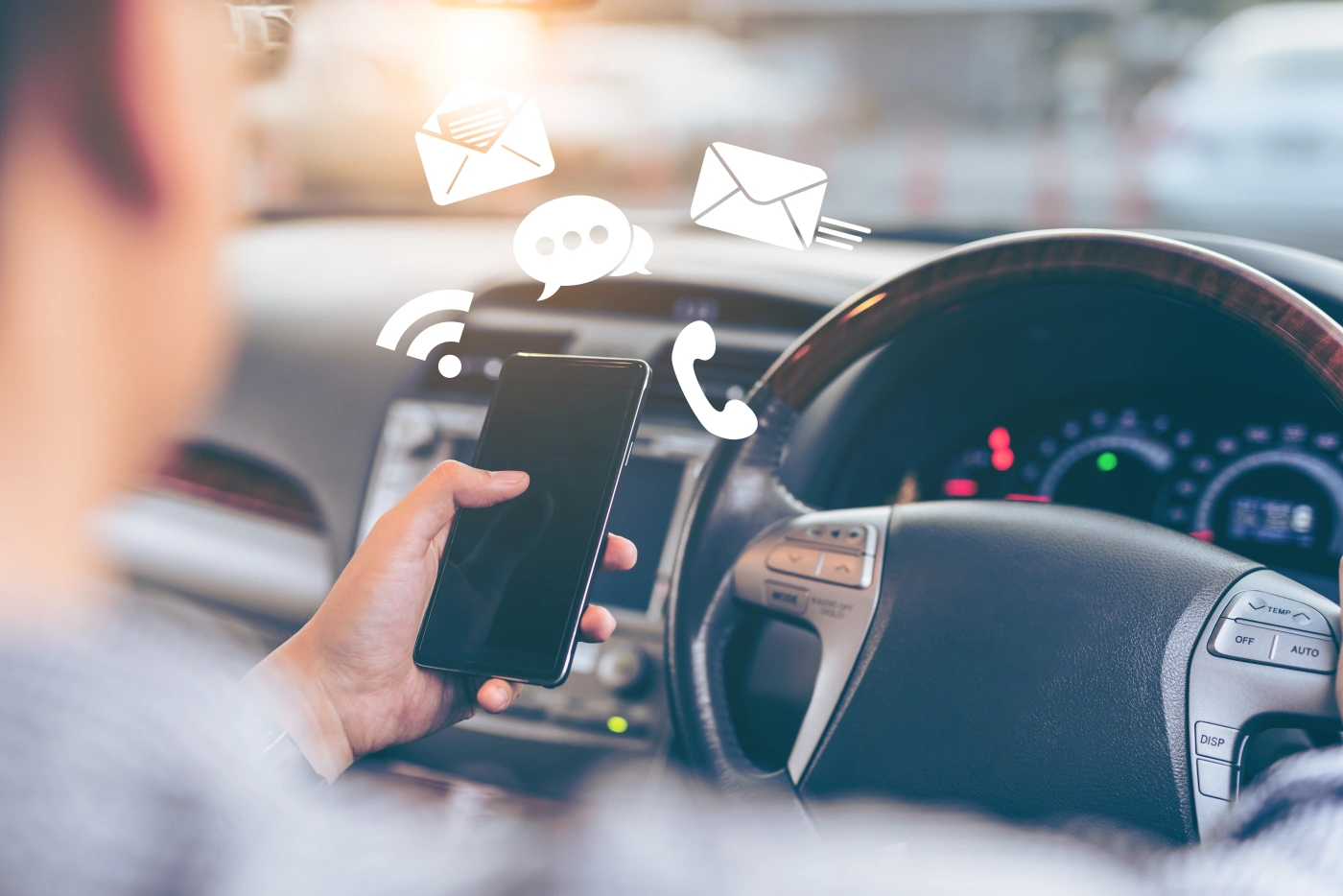Avoid texting while driving to enhance road safety. Stay focused on the road to prevent split-second distractions that could lead to dangerous situations. Be aware of the risks of divided attention, as cognitive impairment can compromise your ability to concentrate. Keep in mind that delayed reaction times resulting from texting can have severe consequences. By prioritizing safety over texting, you reduce the risk of accidents and guarantee quick reflexes when needed. Remember, the dangers of texting while driving go beyond just visual distraction, and being fully attentive to your surroundings is crucial for safe driving.
Visual Distraction
Avoiding visual distraction while texting is essential for safe communication on the road. When you take your eyes off the road to check your phone, you put yourself and others at risk. Even a split second of distraction can lead to a dangerous situation. To prevent accidents, make sure to keep your focus on the road at all times.
One way to minimize visual distraction is by adjusting your phone settings. Enable features like voice-to-text or auto-reply to avoid the temptation of looking at your phone while driving. By utilizing these tools, you can stay connected without compromising your safety.
Another helpful tip is to position your phone strategically. Mounting it on a hands-free device or dashboard can keep it within sight without obstructing your view of the road. This way, you can quickly glance at your phone when necessary without losing sight of potential hazards.
Cognitive Impairment
To maintain full cognitive focus while texting, it's vital to understand the risks of cognitive impairment that can arise from divided attention on the road. When you engage in texting while driving, your cognitive abilities become compromised. Your brain has a limited capacity for processing information, and when you split your attention between texting and driving, it diminishes your ability to fully concentrate on the road ahead. This cognitive impairment can lead to slower reaction times, an inability to accurately assess road conditions, and difficulty in making quick decisions in case of emergencies.
Furthermore, texting while driving can also impair your memory functions. Your brain struggles to retain important information when it's constantly switching between tasks. This can affect your ability to remember essential details about your surroundings while driving, potentially putting you at a higher risk of accidents. By recognizing the cognitive impairments caused by texting and driving, you can make a conscious effort to prioritize safety and avoid distractions on the road.
Delayed Reaction Time
Engaging in texting while driving often results in a delayed reaction time, putting you and others at risk on the road. When you divert your attention to read or send a text, your focus shifts away from the immediate driving environment. This split focus means that when a sudden event occurs on the road, such as a car braking unexpectedly or a pedestrian crossing, your brain takes longer to process the information and react appropriately.
Studies have shown that texting while driving can increase your reaction time by up to 3 times compared to driving without distractions. This delay can be critical in situations where quick reflexes are needed to avoid accidents. Even a split-second delay in reacting to a hazard can have severe consequences on the road.
Decreased Awareness
Texting while driving can lead to a significant decrease in your awareness of the road and potential hazards around you.
- Distraction: Constantly looking at your phone screen takes your attention away from the road, making you less aware of changing traffic conditions.
- Tunnel Vision: Focusing on texting can create a tunnel vision effect, causing you to miss important details in your peripheral vision.
- Reduced Multitasking Ability: Engaging in texting impairs your ability to multitask effectively, diminishing your awareness of the overall driving environment.
This decreased awareness can be dangerous, as it limits your ability to react promptly to sudden changes on the road. Remember, being fully attentive while driving is important for your safety and the safety of others. Avoid the temptation to text and drive to make sure you are always aware of your surroundings and ready to respond to any potential hazards.
Increased Accident Risk
Constantly checking your phone while driving greatly increases the risk of accidents. When you take your eyes off the road to read or respond to a text, even just for a few seconds, you are basically driving blindfolded. Research shows that texting while driving makes you 23 times more likely to be involved in a crash. The act of typing out a message requires manual dexterity, diverting your hands away from the wheel, further compounding the danger. In addition to physical distractions, texting also disrupts your mental focus. Your brain is split between the task of driving and the conversation on your phone, leading to delayed reactions and poor decision-making on the road. It's not just about your safety; it's about the safety of everyone around you. Avoiding texting while driving isn't just a suggestion, it's a responsibility to yourself and others on the road. Remember, no message is worth risking lives for.
Frequently Asked Questions
How Can I Effectively Communicate With Passengers in the Car Without Getting Distracted While Driving?
To communicate effectively with passengers in the car without getting distracted while driving, maintain eye contact when speaking briefly, use hands-free devices for longer conversations, and ask passengers to assist with tasks like changing music or adjusting air conditioning.
Are There Any Specific Exercises or Practices I Can Do to Improve My Cognitive Abilities While Driving?
To improve cognitive abilities while driving, practice mindfulness by staying present and focused on the road. Engage in activities like puzzles or memory games to enhance mental sharpness. Remember, safety comes first, so limit distractions and stay alert.
What Are Some Tips for Reducing My Reaction Time While Driving to Avoid Accidents?
To reduce your reaction time while driving and avoid accidents, stay focused, anticipate potential hazards, maintain a safe following distance, avoid distractions like texting, and practice defensive driving techniques regularly. Your quick response can prevent collisions.
How Can I Stay More Aware of My Surroundings While Driving, Especially in High-Risk Areas?
To stay more aware of your surroundings while driving, especially in high-risk areas, actively scan your environment, anticipate potential hazards, maintain a safe following distance, eliminate distractions, and always be prepared to react swiftly and decisively.
Are There Any Technological Tools or Devices That Can Help Minimize the Risk of Accidents Related to Texting While Driving?
You can utilize various apps like DriveMode or AutoReply to reduce distractions from texting while driving. These tools can automatically respond to messages, limiting the urge to pick up your phone and enhancing road safety.
Conclusion
In summary, refraining from texting while driving is essential for improving road safety. By understanding the risks of visual distraction, cognitive impairment, delayed reaction time, decreased awareness, and heightened accident risk, you can make a deliberate effort to prioritize safe driving practices. Keep in mind, the repercussions of texting while driving can be serious, so always store your phone away and focus on the road to safeguard yourself and others on the road. Stay safe out there!


